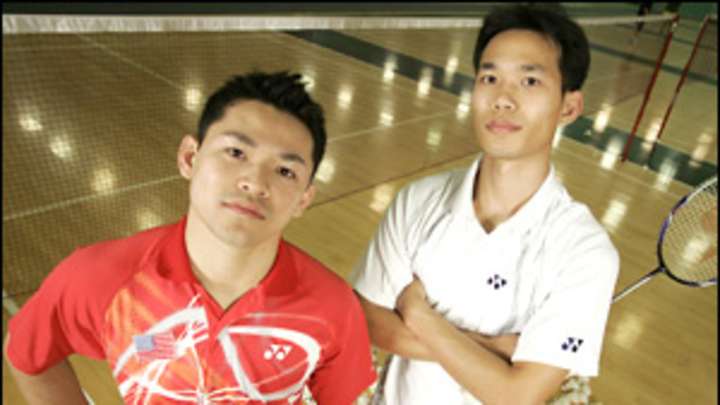Olympic Training Towns: Orange, Calif.

"Today we play for lobster," shouts Don Chew, the perpetually caffeinated 66-year-old owner and architect of the Orange County Badminton Club. "First point gets the tail." On Court 1, Tony Gunawan, a former Olympic and world champion from Indonesia, is coaching the team of Howard Bach and Bob (Khan) Malaythong; and on Court 2, Eva Lee is hitting with Mesinee (May) Mangkalakiri. These four players (born in Vietnam, Laos, Hong Kong and the U.S., respectively), who will likely make up the U.S. Olympic badminton team in Beijing, train at the country's quirkiest center of sporting excellence.
The 77,000-square-foot building, located in a nondescript stretch of gas stations and parking lots two miles from Angel Stadium, contains three vastly different enterprises. At one end, picture windows look onto the 12 badminton courts from Bebe's Cafe, Chew's 96-seat Thai restaurant, named after his daughter. Beyond the cement wall at the other side of the courts hum the presses of Chew's printing business, which churn out splashy catalogs for customers such as Jenny Craig, Kawasaki and Isuzu. "This place is the American dream," Chew says proudly, "times three."
A native of Bangkok, Chew began playing badminton when he was seven. "I was a bad kid," he says. "Badminton saved me, made me believe in something better." He played pro briefly, and when he immigrated to the U.S. in 1972 with his wife, Kim, also a badminton player, he vowed to grow the sport in his new country. In 1996, having expanded his printing business, Chew opened his complex in Orange. With features that include glare-free lights, a springy beachwood floor and an air-circulation system designed not to affect flying birdies, "this is easily the most modern [badminton] facility in the world," says Gunawan.
It's no surprise that top players have migrated here. In addition to the $9,000 training stipends the players receive annually from the USOC, Chew generously donates equipment, plane tickets and hotel rooms for international events. "All we do is ask," says Lee, a triple gold medalist last summer at the Pan Am Games in Rio. That the players remain anonymous even among the locals, however, reflects badminton's continuing obscurity as a serious sport. "Tell people what we do for a living," Lee says, "and they say, 'You play backgammon?' "
The players in Orange see a brighter future. In 2005 Gunawan unretired and paired with Bach. No U.S. individual or team had reached even the quarterfinals of a world championship before Gunawan and Bach, seeded 13th, won that year's world title. Since citizenship rules for Olympic participation are stricter, Gunawan, who received a green card in 2006, will not compete in Beijing. Like Chew, though, he envisions the day when U.S. badminton can join the world's elite. "In Indonesia," he says, "if someone insists you cannot do something, you don't really question it. Here, the word impossible is open to interpretation."
